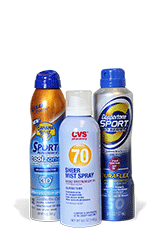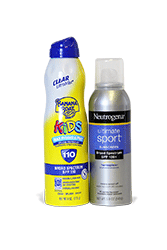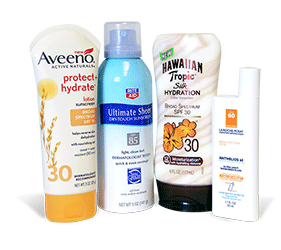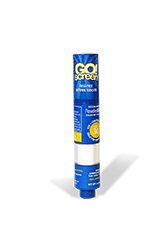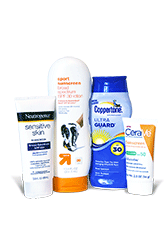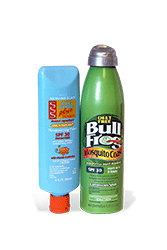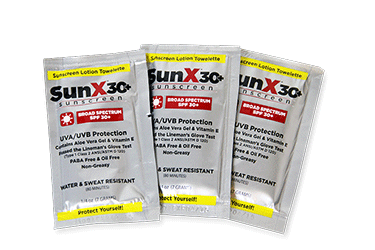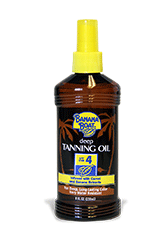More on LEMON!! Most people are familiar with the traditional uses for lemons to soothe sore throats and add some citrus flavor to our foods. However the diversity of applications for lemons far exceeds general knowledge and once you read the following list, you’ll likely want to stock at least a few lemons in your kitchen 24-7.
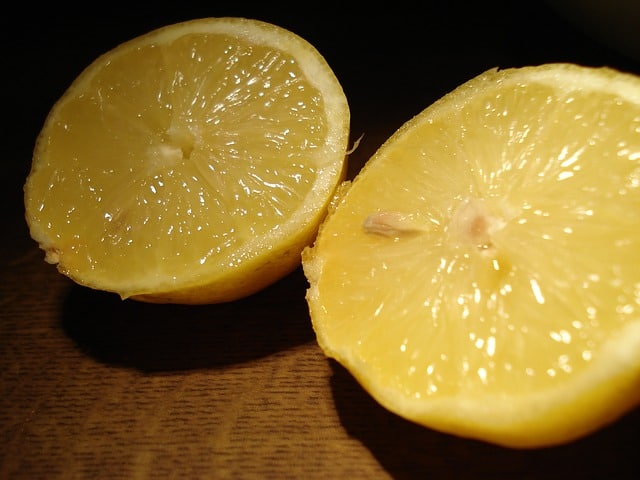
1. Freshen the Fridge
Remove refrigerator odors with ease. Dab lemon juice on a cotton ball or sponge and leave it in the fridge for several hours. (Be sure to toss any malodorous items that might be causing the smell.)
Remove refrigerator odors with ease. Dab lemon juice on a cotton ball or sponge and leave it in the fridge for several hours. (Be sure to toss any malodorous items that might be causing the smell.)
2. High Blood Pressure
Lemon contains potassium which controls high blood pressure and reduces the effect of nausea and dizziness.
Lemon contains potassium which controls high blood pressure and reduces the effect of nausea and dizziness.
3. Prevent Cauliflower From Turning Brown
Cauliflower tends to turn brown with even the slightest cooking. Make sure the white stays white by squeezing on a teaspoon of fresh lemon juice before heating.
Cauliflower tends to turn brown with even the slightest cooking. Make sure the white stays white by squeezing on a teaspoon of fresh lemon juice before heating.
4. Mental Health
Lemon water can pep your mood and relieve you from depression and stress. Long distance walkers and world travelers as well as explorers look upon lemon as a Godsend. At the onset of fatigue, suck the lemon juice through a hole in the top. Quick acting medicine it is, providing almost utmost refreshment.
Lemon water can pep your mood and relieve you from depression and stress. Long distance walkers and world travelers as well as explorers look upon lemon as a Godsend. At the onset of fatigue, suck the lemon juice through a hole in the top. Quick acting medicine it is, providing almost utmost refreshment.
5. Restart Cutting Boards
No wonder your kitchen cutting board smells! After all, you use it to chop shallots, crush garlic, and prepare fish. To rid the smell and sanitize the cutting board, cut a lemon in half and rub it all over.
No wonder your kitchen cutting board smells! After all, you use it to chop shallots, crush garlic, and prepare fish. To rid the smell and sanitize the cutting board, cut a lemon in half and rub it all over.
6. Respiratory Problems
Lemon water can reduce phlegm. It can also help with proper breathing and aids those suffering with asthma.
Lemon water can reduce phlegm. It can also help with proper breathing and aids those suffering with asthma.
7. Treating Arthritis and Rheumatism
Lemon is a diuretic - it assists in the production of urine which helps reduce inflammation by flushing out toxins and bacteria while also giving you relief from arthritis and rheumatism.
Lemon is a diuretic - it assists in the production of urine which helps reduce inflammation by flushing out toxins and bacteria while also giving you relief from arthritis and rheumatism.
8. Prevents Kidney Stones
Regular consumption of the refreshing drink: lemon juice mixed with water may increase the production of urinary citrate, a chemical in the urine that prevents the formation of crystals that could become kidney stones.
Regular consumption of the refreshing drink: lemon juice mixed with water may increase the production of urinary citrate, a chemical in the urine that prevents the formation of crystals that could become kidney stones.
9. Keep Insects Out of the KitchenYou don’t need insecticides or ant traps in your kitchen: just give it the lemon treatment! First, squirt some lemon juice on door thresholds and windowsills. Then squeeze lemon juice into any holes or cracks where the ants are getting in. Finally, scatter small slices of lemon peel around the outdoor entrance. The ants will get the message that they aren’t welcome. Lemons are also effective against roaches and fleas: simply mix the juice and rinds of 4 lemons with 1/2 gallon (2 liters) water and wash your floors with it. These pests hate the smell.
10. Anti-Aging
Lemon water reduces the production of free radicals responsible for aging skin and skin damage. Lemon water is calorie free and an antioxidant.
Lemon water reduces the production of free radicals responsible for aging skin and skin damage. Lemon water is calorie free and an antioxidant.
11. Fruit and Vegetable Wash
You never know what kind of pesticides or dirt lurking on the skin of your favorite fruits and vegetables. Slice your lemon and squeeze a tablespoon of juice into a spray bottle with water. The lemon juice is a natural disinfectant and will leave your fruits and vegetables smelling nice too.
You never know what kind of pesticides or dirt lurking on the skin of your favorite fruits and vegetables. Slice your lemon and squeeze a tablespoon of juice into a spray bottle with water. The lemon juice is a natural disinfectant and will leave your fruits and vegetables smelling nice too.
12. Treat Infections
Lemon water can fight throat infections due to its antibacterial property. If salt water doesn't work for you, try lemon water for gargling.
Lemon water can fight throat infections due to its antibacterial property. If salt water doesn't work for you, try lemon water for gargling.
13. Deodorize Your Garbage
If your garbage is beginning to smell yucky, here’s an easy way to deodorize it: Save leftover lemon and orange peels and toss them at the base under the bag. Repeat once every couple of weeks.
If your garbage is beginning to smell yucky, here’s an easy way to deodorize it: Save leftover lemon and orange peels and toss them at the base under the bag. Repeat once every couple of weeks.
14. Keep Guacamole Green
You’re making guacamole for the big party, and you don’t want it to turn brown before the guests arrive. Simply sprinkle a liberal amount of fresh lemon juice over it and it will stay fresh and green - and the flavor of the lemon juice is a natural complement. Make fruit salad in advance too. Just squeeze some lemon juice onto the apple slices, and they’ll stay snowy white.
You’re making guacamole for the big party, and you don’t want it to turn brown before the guests arrive. Simply sprinkle a liberal amount of fresh lemon juice over it and it will stay fresh and green - and the flavor of the lemon juice is a natural complement. Make fruit salad in advance too. Just squeeze some lemon juice onto the apple slices, and they’ll stay snowy white.
15. Purges The Blood
We consume a lot of junk food or food with a lot of preservatives and artificial flavours. This builds up toxins in the blood and body. Daily consumption of lemon water helps to purify the blood!
We consume a lot of junk food or food with a lot of preservatives and artificial flavours. This builds up toxins in the blood and body. Daily consumption of lemon water helps to purify the blood!
16. Make Soggy Lettuce Crisp
Don’t toss that soggy lettuce into the garbage. With the help of a little lemon juice you can instead toss it in a salad. Add the juice of half a lemon to a bowl of cold water. Then put the soggy lettuce in it and refrigerate for 1 hour. Make sure to dry the leaves completely before using in salads or sandwiches.
Don’t toss that soggy lettuce into the garbage. With the help of a little lemon juice you can instead toss it in a salad. Add the juice of half a lemon to a bowl of cold water. Then put the soggy lettuce in it and refrigerate for 1 hour. Make sure to dry the leaves completely before using in salads or sandwiches.
17. Oral Health
Lemon juice also stops bleeding gums and reduces toothaches.
Lemon juice also stops bleeding gums and reduces toothaches.
18. Lighten Age Spots
Why buy expensive creams when you’ve got lemon juice? To lighten liver spots or freckles, try applying lemon juice directly to the area. Let it sit for 15 minutes and then rinse your skin clean. It’s a safe and effective skin-lightening agent.
Why buy expensive creams when you’ve got lemon juice? To lighten liver spots or freckles, try applying lemon juice directly to the area. Let it sit for 15 minutes and then rinse your skin clean. It’s a safe and effective skin-lightening agent.
19. Create Blonde Highlights
For salon-worthy highlights, add 1/4 cup lemon juice to 3/4 cup water and rinse your hair with the mixture. Then, sit in the sun until your hair dries. To maximize the effect, repeat once daily for up to a week.
For salon-worthy highlights, add 1/4 cup lemon juice to 3/4 cup water and rinse your hair with the mixture. Then, sit in the sun until your hair dries. To maximize the effect, repeat once daily for up to a week.
20. Make a Room Scent/Humidifier
Freshen and moisturize the air in your home on dry winter days. Make your own room scent that doubles as a humidifier. If you have a wood-burning stove, place an enameled cast-iron pot or bowl on top, fill with water, and add lemon (and/or orange) peels, cinnamon sticks, cloves, and apple skins. No wood-burning stove? Use your stovetop instead and simply simmer the water periodically.
Freshen and moisturize the air in your home on dry winter days. Make your own room scent that doubles as a humidifier. If you have a wood-burning stove, place an enameled cast-iron pot or bowl on top, fill with water, and add lemon (and/or orange) peels, cinnamon sticks, cloves, and apple skins. No wood-burning stove? Use your stovetop instead and simply simmer the water periodically.
21. Clean and Whiten Nails
Pamper your hands without a manicurist. Add the juice of 1/2 lemon to 1 cup warm water and soak your fingertips in the mixture for 5 minutes. After pushing back the cuticles, rub some lemon peel back and forth against the nail.
Pamper your hands without a manicurist. Add the juice of 1/2 lemon to 1 cup warm water and soak your fingertips in the mixture for 5 minutes. After pushing back the cuticles, rub some lemon peel back and forth against the nail.
22. Cleanse Your Face
Zap zits naturally by dabbing lemon juice on blackheads to draw them out during the day. You can also wash your face with lemon juice for a natural cleanse and exfoliation. Your skin should improve after several days of treatment. Lemon water is also a cooling agent, best way to beat the heat.
Zap zits naturally by dabbing lemon juice on blackheads to draw them out during the day. You can also wash your face with lemon juice for a natural cleanse and exfoliation. Your skin should improve after several days of treatment. Lemon water is also a cooling agent, best way to beat the heat.
23. Freshen Your Breath
Make an impromptu mouthwash by rinsing with lemon juice straight from the bottle. Swallow for longer-lasting fresh breath. The citric acid in the juice alters the pH level in your mouth, killing bacteria that causes bad breath. Don't forget to rinse, as long-term exposure to lemon acid can harm tooth enamel.
Make an impromptu mouthwash by rinsing with lemon juice straight from the bottle. Swallow for longer-lasting fresh breath. The citric acid in the juice alters the pH level in your mouth, killing bacteria that causes bad breath. Don't forget to rinse, as long-term exposure to lemon acid can harm tooth enamel.
24. Treat Flaky Dandruff
If itchy, scaly dandruff has you scratching your head, relief is in your fridge. Just massage two tablespoons of lemon juice into your scalp and rinse with water. Then stir one teaspoon lemon juice into one cup water and rinse your hair with it. Repeat daily until the flakes disappear.
If itchy, scaly dandruff has you scratching your head, relief is in your fridge. Just massage two tablespoons of lemon juice into your scalp and rinse with water. Then stir one teaspoon lemon juice into one cup water and rinse your hair with it. Repeat daily until the flakes disappear.
25. Get Rid of Tough Stains on MarbleYou probably think of marble as stone, but it is really petrified calcium (also known as old seashells), so it's porous and easily stained and damaged. If washing won’t remove a stubborn stain, cut a lemon in half, dip the exposed flesh into some table salt, and rub it vigorously on the stain. But do this only as a last resort; acid can damage marble. Rinse well!
26. Remove Berry Stains
It sure was fun to pick your own berries, but now your fingers are stained with berry juice that won’t come off no matter how much you scrub with soap and water. Try washing your hands with undiluted lemon juice, then wait a few minutes and wash with warm, soapy water. Repeat until your hands are stain-free.
It sure was fun to pick your own berries, but now your fingers are stained with berry juice that won’t come off no matter how much you scrub with soap and water. Try washing your hands with undiluted lemon juice, then wait a few minutes and wash with warm, soapy water. Repeat until your hands are stain-free.
27. Soften Dry, Scaly Elbows
For better looking (and feeling) elbows, mix baking soda and lemon juice to make an abrasive paste, and rub it into your elbows for a soothing, smoothing, and exfoliating treatment. Then rinse in a mixture of equal parts lemon juice and water. Finally, massage with olive oil and dab dry with a soft cloth.
For better looking (and feeling) elbows, mix baking soda and lemon juice to make an abrasive paste, and rub it into your elbows for a soothing, smoothing, and exfoliating treatment. Then rinse in a mixture of equal parts lemon juice and water. Finally, massage with olive oil and dab dry with a soft cloth.
28. Headaches
Lemon juice with a few teaspoons of hot tea is the treatment of a sophisticated New York bartender, for those who suffer with hangover headaches, as well as headaches from other causes. He converts his customers to this regime, weaning them away from drug remedies completely.
Lemon juice with a few teaspoons of hot tea is the treatment of a sophisticated New York bartender, for those who suffer with hangover headaches, as well as headaches from other causes. He converts his customers to this regime, weaning them away from drug remedies completely.
29. Chills and Fevers
Chills and fevers may be due to a variety of causes - never the less, the lemon is always a helpful remedy. Spanish physicians regard it as an infallible friend.
Chills and fevers may be due to a variety of causes - never the less, the lemon is always a helpful remedy. Spanish physicians regard it as an infallible friend.
30. Diptheria
Skip the vaccine for this disease. Lemon Juice Treatment still proves as one of the most powerful antiseptics and the strong digestive qualities of the fruit are admired around the world. With the juice every hour or two, and at the same time, 1/2 to 1 tsp. should be swallowed. This cuts loose the false membrane in the throat and permits it to come out.
Skip the vaccine for this disease. Lemon Juice Treatment still proves as one of the most powerful antiseptics and the strong digestive qualities of the fruit are admired around the world. With the juice every hour or two, and at the same time, 1/2 to 1 tsp. should be swallowed. This cuts loose the false membrane in the throat and permits it to come out.
31. Vaginal Hygiene
Diluted lemon juice makes a safe and sane method of vaginal hygiene. As a powerful antiseptic it is free from irritating drugs in douches and suppositories.
Diluted lemon juice makes a safe and sane method of vaginal hygiene. As a powerful antiseptic it is free from irritating drugs in douches and suppositories.
32. Forget The Moth Balls
A charming French custom to keep closets free from moths is to take ripe lemons and stick them with cloves all over the skin. The heavily studded lemons slowly dry with their cloves, leaving a marvelous odor throughout the closets and rooms.
A charming French custom to keep closets free from moths is to take ripe lemons and stick them with cloves all over the skin. The heavily studded lemons slowly dry with their cloves, leaving a marvelous odor throughout the closets and rooms.
33. Stomach Health
Digestive ailments are common but warm water and lime juice is the solution to most digestive problems. Lemon juice helps to purify the blood, reduces your chances of indigestion, constipation, eliminates toxins from the body, adds digestion and reduces phlegm.
Digestive ailments are common but warm water and lime juice is the solution to most digestive problems. Lemon juice helps to purify the blood, reduces your chances of indigestion, constipation, eliminates toxins from the body, adds digestion and reduces phlegm.
34. Disinfect Cuts and Scrapes
Stop bleeding and disinfect minor cuts and scraps by pouring a few drops of lemon juice directly on the cut. You can also apply the juice with a cotton ball and hold firmly in place for one minute.
Stop bleeding and disinfect minor cuts and scraps by pouring a few drops of lemon juice directly on the cut. You can also apply the juice with a cotton ball and hold firmly in place for one minute.
35. Soothe Poison Ivy Rash
You won’t need an ocean of calamine lotion the next time poison ivy comes a-creeping. Just apply lemon juice directly to the affected area to soothe itching and alleviate the rash.
You won’t need an ocean of calamine lotion the next time poison ivy comes a-creeping. Just apply lemon juice directly to the affected area to soothe itching and alleviate the rash.
36. Remove Warts
You’ve tried countless remedies to banish warts and nothing seems to work. Next time, apply a dab of lemon juice directly to the wart using a cotton swab. Repeat for several days until the acids in the lemon juice dissolve the wart completely.
You’ve tried countless remedies to banish warts and nothing seems to work. Next time, apply a dab of lemon juice directly to the wart using a cotton swab. Repeat for several days until the acids in the lemon juice dissolve the wart completely.
37. Bleach Delicate FabricsAvoid additional bleach stains by swapping ordinary household chlorine bleach with lemon juice, which is milder but no less effective. Soak your delicates in a mixture of lemon juice and baking soda for at least half an hour before washing.
38. Clean Tarnished Brass and Polish Chrome
Say good-bye to tarnish on brass, copper, or stainless steel. Make a paste of lemon juice and salt (or substitute baking soda or cream of tartar for the salt) and coat the affected area. Let it stay on for 5 minutes. Then wash in warm water, rinse, and polish dry. Use the same mixture to clean metal kitchen sinks too. Apply the paste, scrub gently, and rinse.Get rid of mineral deposits and polish chrome faucets and other tarnished chrome. Simply rub lemon rind over the chrome and watch it shine! Rinse well and dry with a soft cloth.
Say good-bye to tarnish on brass, copper, or stainless steel. Make a paste of lemon juice and salt (or substitute baking soda or cream of tartar for the salt) and coat the affected area. Let it stay on for 5 minutes. Then wash in warm water, rinse, and polish dry. Use the same mixture to clean metal kitchen sinks too. Apply the paste, scrub gently, and rinse.Get rid of mineral deposits and polish chrome faucets and other tarnished chrome. Simply rub lemon rind over the chrome and watch it shine! Rinse well and dry with a soft cloth.
39. Replace Your Dry Cleaner
Ditch the expensive dry-cleaning bills (and harsh chemicals) with this homegrown trick. Simply scrub the stained area on shirts and blouses with equal parts lemon juice and water. Your “pits” will be good as new, and smell nice too!
Ditch the expensive dry-cleaning bills (and harsh chemicals) with this homegrown trick. Simply scrub the stained area on shirts and blouses with equal parts lemon juice and water. Your “pits” will be good as new, and smell nice too!
40. Boost Laundry Detergent
For more powerful cleaning action, pour 1 cup lemon juice into the washer during the wash cycle. The natural bleaching action of the juice will zap stains and remove rust and mineral discolorations from cotton T-shirts and briefs Your clothes will turn out brighter and also come out smelling lemony fresh.
For more powerful cleaning action, pour 1 cup lemon juice into the washer during the wash cycle. The natural bleaching action of the juice will zap stains and remove rust and mineral discolorations from cotton T-shirts and briefs Your clothes will turn out brighter and also come out smelling lemony fresh.
41. Rid Clothes of Mildew
Have you ever unpacked clothes you stored all winter and discovered some are stained with mildew? To get rid of it, make a paste of lemon juice and salt and rub it on the affected area, then dry the clothes in sunlight. Repeat the process until the stain is gone.
Have you ever unpacked clothes you stored all winter and discovered some are stained with mildew? To get rid of it, make a paste of lemon juice and salt and rub it on the affected area, then dry the clothes in sunlight. Repeat the process until the stain is gone.
42. Eliminate Fireplace Odor
There’s nothing cozier on a cold winter night than a warm fire burning in the fireplace - unless the fire happens to smell horrible. Next time you have a fire that sends a stench into the room, try throwing a few lemon peels into the flames. Or simply burn some lemon peels along with your firewood as a preventive measure.
There’s nothing cozier on a cold winter night than a warm fire burning in the fireplace - unless the fire happens to smell horrible. Next time you have a fire that sends a stench into the room, try throwing a few lemon peels into the flames. Or simply burn some lemon peels along with your firewood as a preventive measure.
43. Neutralize Cat-Box Odor
You don’t have to use an aerosol spray to neutralize foul-smelling cat-box odors - or to freshen the air in your bathroom. Just cut a couple of lemons in half. Then place them, cut side up, in a dish in the room, and the air will soon smell lemon-fresh.
You don’t have to use an aerosol spray to neutralize foul-smelling cat-box odors - or to freshen the air in your bathroom. Just cut a couple of lemons in half. Then place them, cut side up, in a dish in the room, and the air will soon smell lemon-fresh.
44. Deodorize a Humidifier
When your humidifier starts to smell funky, deodorize it with ease: Just pour 3 or 4 teaspoons lemon juice into the water. It will not only remove the off odor but will replace it with a lemon-fresh fragrance. Repeat every couple of weeks to keep the odor from returning.
When your humidifier starts to smell funky, deodorize it with ease: Just pour 3 or 4 teaspoons lemon juice into the water. It will not only remove the off odor but will replace it with a lemon-fresh fragrance. Repeat every couple of weeks to keep the odor from returning.
45. Reduce Asthma SymptomsIn addition to a general detoxifying diet, 2 tablespoons of lemon juice before each meal, and before retiring can reduce asthma symptoms.
* If you do consume lemon peel, stick to organic lemons to reduce your pesticide exposure.
~with Thanks to Paul Quaiser



